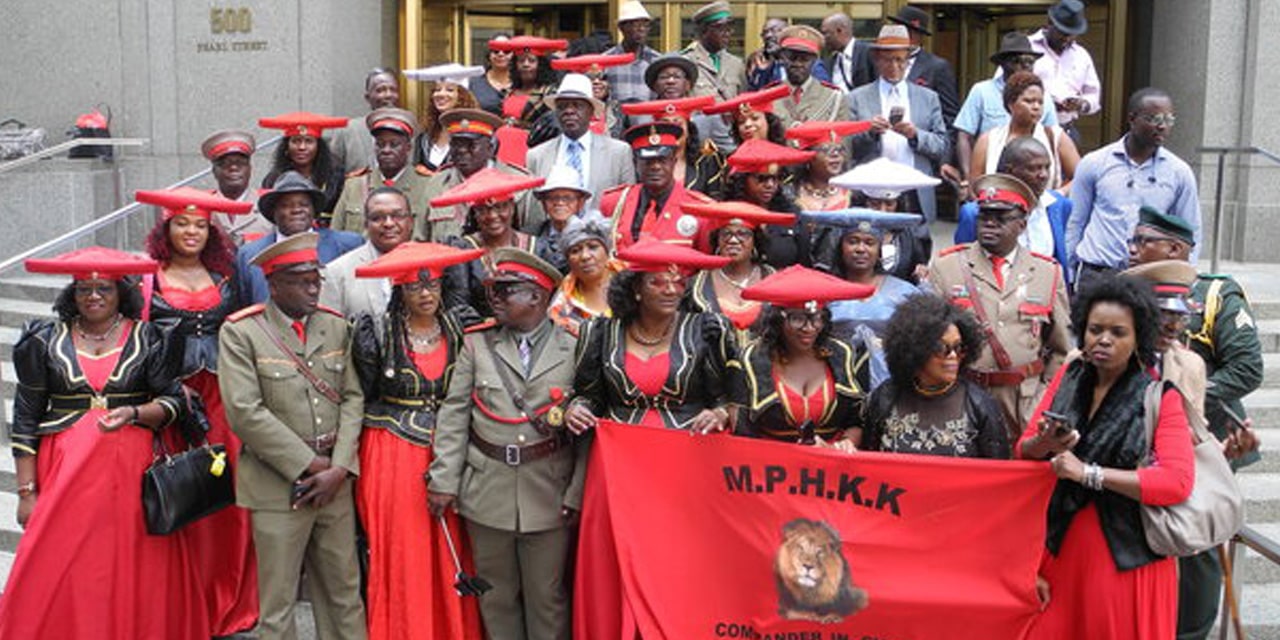Andrew Kathindi
Genocide descendants have vowed to continue the fight “in and out of court” after the US Court of Appeals, last week, dismissed their case brought after they unsuccessfully sued the German government for reparations for the atrocities committed from 1904-1908 in US Federal Court.
Paramount Chief Advocate of the Ovaherero Traditional Authority, Vekuii Rukoro and Gaob Johannes Isaack of the Nama Traditional Leaders Association, have instructed their lawyers in New York to file a Petition for Rehearing and for “En Banc” Proceedings, following a USA Court of Appeals’ decision, which they say had “fundamental legal error at its heart.”
“The En Banc Petition will be put to a vote by the entire Second Circuit, which will decide whether or not to rehear and withdraw the flawed decision. We expect to file our En Banc Petition very soon around the first week of October, and we promise to share it broadly after it is filed,” read the statement from the traditional leaders.
An en banc session is a session in which a case is heard before all the judges of a court (before the entire bench) rather than by one judge or a panel of judges selected from them.
District Judge Laura Taylor Swain, last year dismissed the lawsuit by the Ovaherero and Nama authorities who are demanding that the German government pay reparations for what historians are calling the first genocide of the 20st century.
The l German government is believed to have killed 100,000 people from the Ovaherero communities and 10,000 from the Nama during their brutal colonial occupation of (then) South West Africa.
The traditional authorities, who, last year appealed the judge’s decision – the appeal which has been dismissed— have vowed to take the matter all the way to the “US Supreme Court if need be.”
“The merits of the case were not considered and the Germans by hiding behind technicalities, can, for a while, pop champagne bottles in celebration of their hollow victory. While the smart Germans themselves know that there’s nothing to celebrate as their nightmare is to become more complex.”
The traditional leaders further argued that “no viable and lasting negotiated settlement is possible without the full, direct and active participation of the Ovaherero and Nama Leaders representing the overwhelming majority of the Victim Communities – as opposed to handpicked pro-Government clan Chiefs.”
“The US court did not dispute the subject matter of the case and rather advised that the concerned communities must rather seek assistance elsewhere. The terrible wrongs elucidated in Plaintiffs’ complaint must be addressed through a vehicle other than the US court system.”
The traditional leaders’ statements come after Landless People Movement (LPM) leader Bernard Swartbooi last month, urged the descendants of communities of affected by the genocide to form their own technical negotiating team, parallel to that of the Namibian government.
“The affected communities must now wake up and stop just demanding to want to be on the table negotiating with the Germans on the side of Namibia and the government. The affected communities must organise themselves at a higher level, set up joint technical negotiation team, to start putting figures together. Stop internal politicking and submit a proposal to the German authorities,” said Swarbooi.
Swartbooi’s statement were prompted after the Office of the President in August revealed that the Technical Committee (TC) on genocide will work with the National Planning Commission to identify costed projects for the //Kharas, Hardap, Khomas, Kunene, Omaheke, Otjozondjupa and Erongo regions.
“The projects will be in the fields of water provision, rural and peri-urban electrification, road network construction, housing, education, vocational training, value addition, agricultural development and land acquisition,” the statement from the Presidency read.
President Hage Geingob earlier this year scoffed at a supposed settlement offer of N$192 million from the German government as part of reparations.
While several sources from the German side say no such offer was made, Geingob stated that, “They offered Euro 10 million and we said that is an insult,” he said.




